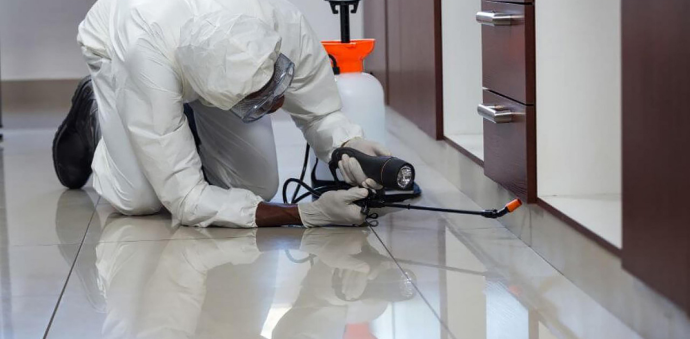Can I Sue My Landlord for Not Fixing Pest Problems? A North Carolina Tenant’s Guide
Dealing with pest infestations in your rental home, such as mice, cockroaches, bed bugs, or other pests can be stressful and harmful to your health and quality of life. When you report these issues to your landlord but they refuse or neglect to fix them, you might wonder: Can I sue my landlord for not fixing pest problems?
This article provides a detailed legal overview of tenant rights in North Carolina related to pest infestations, landlord responsibilities, when and how tenants can take legal action, and how becoming a member of LawPassport can help you obtain expert legal assistance for your case.
Landlord Responsibilities for Pest Control in North Carolina
In North Carolina, landlords have a legal obligation to provide rental properties that meet certain minimum health and safety standards, which includes being reasonably free from pest infestations. This duty is part of the implied warranty of habitability, outlined in N.C. Gen. Stat. § 42-42.
Landlords must:
- Ensure the property is pest-free at the start of the lease.
- Respond promptly to tenant complaints about pests.
- Arrange for pest control measures, including hiring licensed professionals if necessary.
- Maintain common areas free from infestation risks, especially in multi-unit buildings.
Failing to meet these obligations can be considered a breach of the lease and landlord-tenant laws, opening the door for tenant remedies.
Tenant Responsibilities and Reporting Pest Issues
Tenants also share responsibility in preventing pest problems by:
- Keeping the premises clean and sanitary.
- Reporting pest infestations to landlords in writing and promptly.
- Complying with lease terms regarding pest prevention and cleanliness.
Timely and documented pest complaints are critical for tenants to establish landlord negligence in legal claims.
When Can You Sue Your Landlord for Not Fixing Pest Problems?
You may consider suing your landlord if:
- You Notified Your Landlord in Writing: You reported the pest infestation clearly and gave your landlord reasonable time to fix it.
- The Landlord Failed to Act: The landlord ignored your complaints or did not provide effective extermination.
- The Infestation Made the Property Uninhabitable or Harmed Your Health: Evidence shows the infestation created unsafe living conditions.
- You Suffered Consequences: Such as property damage, health issues, or financial losses.
Under these circumstances, tenants can pursue claims for breach of contract, violation of implied warranty of habitability, and sometimes negligence or emotional distress.
Forms of Compensation Tenants Can Seek
If you sue and win, potential remedies include:
- Monetary damages for physical property damage.
- Medical expenses linked to pest-related health problems.
- Compensation for emotional distress in some cases.
- Lease termination and rent refunds or abatement.
- Injunctive relief compelling the landlord to fix the pest issues.
Gathering Evidence for Your Case
Successful claims require solid evidence such as:
- Copies of all written communications with your landlord.
- Photos, videos, and professional pest inspection or extermination reports.
- Medical records linking health issues to pest exposure.
- Witness statements or expert testimony if applicable.
Thorough documentation strengthens your position considerably.
Alternatives and Precautions Before Suing
Before filing a lawsuit:
- Consider mediation or negotiation with your landlord.
- Try filing complaints with local housing authorities or health departments.
- Understand local tenant protection laws or ordinances that might provide faster relief.
- Consult a qualified tenant attorney to assess your case and guide legal strategy.
How LawPassport Assists Tenants with Pest-Related Landlord Disputes
LawPassport members gain access to experienced North Carolina tenant attorneys who:
- Evaluate your specific infestation issue and landlord interactions.
- Assist with proper written notification and evidence collection.
- Advise on whether and how to pursue legal action.
- Represent you in negotiations, mediation, or court proceedings.
This professional legal support maximizes your chances of obtaining relief and protects you from retaliation.
Summary: When and How to Sue Your Landlord for Pest Problems in North Carolina
- Landlords have a legal duty to maintain pest-free, habitable rentals.
- Tenants must promptly notify landlords about infestations in writing and document all communications.
- Legal action is viable when landlords fail to fix serious pest issues affecting habitability.
- Tenants can seek financial damages, lease termination, and injunctive relief.
- Legal counsel available through LawPassport is essential for navigating this complex process.
Call to Action: Get the Legal Help You Need to Address Pest Problems
If your North Carolina landlord refuses to fix pest infestations and your health and safety are at risk, don’t wait. Contact LawPassport to connect with expert tenant attorneys who will stand by your side, fight for your rights, and help you get the compensation and repairs you deserve.
Join LawPassport today and take the first step toward a pest-free, safe home.
Read: What to Do If Landlord Refuses to Pay for Extermination
Read: Tenant Rights: Breaking a Lease for Uninhabitable Conditions
